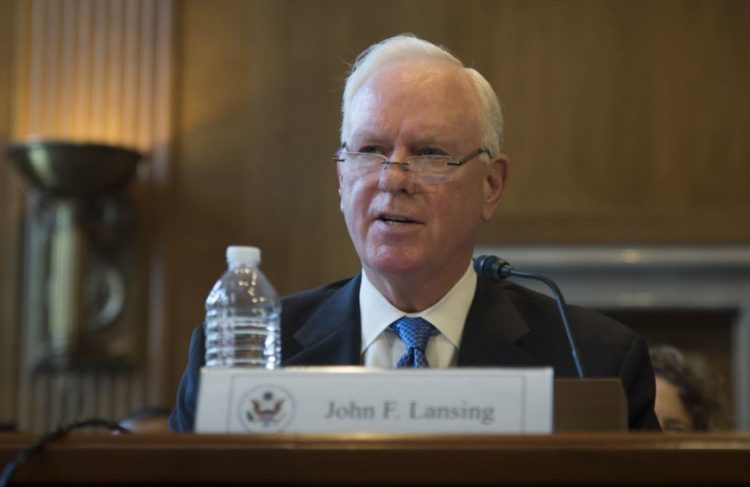If there existed a Don Quixote Prize for Impossible Dreams in Journalism, the winner this year would be one John Lansing, who aims to fix U.S. broadcasting to Cuba.
Lansing directs the U.S. agency that supervises Radio and TV Marti. He had the bad fortune to learn last October that TV Marti had produced a documentary about philanthropist George Soros that was, in Lansing’s opinion, “blatantly anti-Semitic” and “wholly inconsistent” with the standards and ethics that should guide all U.S. government programming.
The program was such an atrocity that no Cuban American in Congress defended it. Radio and TV Marti director Tomas Regalado said it was “not precise” and lacked “balance” –a bizarre position from which he soon retreated, with Senator Jeff Flake telling him on Twitter that “there is no ‘balance’ that makes anti-Semitism right.”
Regalado fired employees that were deemed to be connected to the Soros program, including some whose connection seemed peripheral. Lansing, to his credit, ordered a full review of Radio and TV Marti programming.
The review, conducted by five independent experts, found that “well-established norms of objectivity in journalism are routinely disregarded in favor of overtly propagandistic communications tactics.”
Most devastating of all was the experts’ contention that U.S. broadcasts to Cuba are a failure even if evaluated purely as an exercise in propaganda. Production quality is “mediocre,” the style is that of 1960’s Miami radio, content is boring, and there is little attempt to build empathy with the audience in Cuba, especially the younger generation.
Lansing told the Washington Post that the review exposed “a lack of basic journalistic standards across the board” and demands rebuilding Radio and TV Marti “from the ground up.”
To accomplish that, he will have to fight an institutional culture that has existed for 34 years and has little to do with real journalism.
Twenty-five years ago, an evaluation conducted by Lansing’s predecessors found that the stations suffered from “politicized journalistic decisions and an oversized and growing share of coverage devoted to the Cuban-American community.” In 2003, another internal evaluation forced the resignation of the stations’ director after it found that they “lacked on-air quality control” and had a series of management problems that suggested corruption. In 2009, Cuban dissident Vladimiro Roca told the BBC that “80 percent of the station’s programming is about the local agenda in Miami.”
This is the news organization that in 2000 was so paralyzed by the news that Elian Gonzalez was reunited with his father that it waited four hours to cover the news, long after Cuban state media. In 2002, it waited a full day to broadcast a speech in Havana by a former President of the United States, Jimmy Carter, who spoke of human rights and praised the Varela Project, led by dissident Oswaldo Payá.
Cuba issues in the Congress are routinely covered by citing only the representatives of Miami-Dade County. When John Bolton spoke in Miami last November, the coverage featured interviews only of people who agreed with him. Last December, a story on an American company managing a hotel in Cuba featured only critics of the business venture, and no indication that the American company had been offered a chance to comment. Last January, Senators Rubio and Menendez proposed restoring automatic visas for Cuban doctors on medical missions, and the resulting story included only their views, none in opposition.
The examples are endless. They illustrate not that Radio and TV Marti have no balance, but that they have their own concept of balance.
Most of us think of good journalism as the factual presentation of events – and if opinions are included, the full range of differing views is represented.
Radio and TV Marti have a different idea: they balance the single-minded Cuban state media with a counterweight: a full dose of one point of view that they believe to be Granma’s opposite.
Never mind that this means ignoring the views of many Cuban Americans, and also ignoring the mandate to “represent America, not any single segment of American society.” This style of journalism, delivered as part of a mission to change Cuba, is not the journalism of a democracy.
John Lansing deserves support, and if he is to have the slightest chance of improving these broadcasts, he must reverse the disastrous decision, made under political pressure in 1996, to locate Radio and TV Marti in Miami. They belong in Washington with the rest of the Voice of America, and the staff must be professional journalists working free of political influence. After two decades, it is clear that these conditions cannot be met with the stations located in Miami.
But Congress should consider a larger question, which is whether Radio and TV Marti are necessary at all. They come from an early Cold War world where government-operated radio was the sole means to reach people in communist countries.
That world is long gone. Cubans today listen to radio and see television from around the world, they travel outside Cuba, they meet family and other visitors to Cuba, they have El Paquete Semanal, they have access to the Internet, and they use Facebook, Twitter, WhatsApp, and Imo with gusto.
Moreover, they now witness the development of new Cuban web-based media –14yMedio, Periodismo de Barrio, and many others – that are diverse, interesting, and modern, and treat their audience as intelligent citizens rather than as subjects that need instruction. Their immediacy, style, and dedication to local coverage provide new competition to state’s medios fundamentales, and are arguably forcing them to improve.
There is nothing harder to kill than a U.S. government program, but consider: The Voice of America’s Spanish service could create a wonderful Cuba Hour. American taxpayers could save a little money. Mr. Lansing could concentrate on more important work. And Martí could rest in peace, knowing that his name is no longer being abused every day on radio and television.










